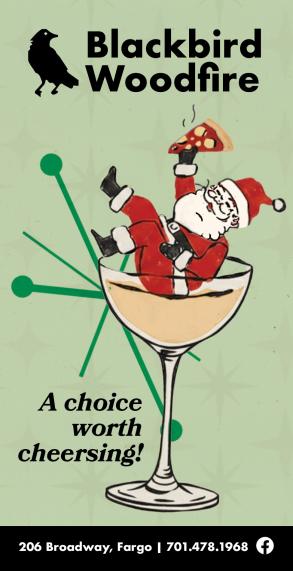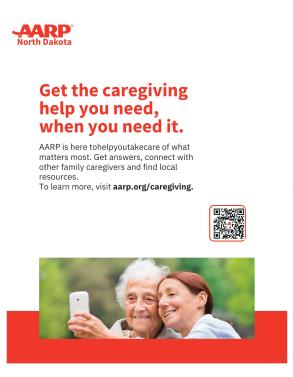Culture | March 8th, 2017

I’m polyamorous and I live with my two girlfriends, who both mean the world to me. They contribute to making me a better person by challenging me when I’m wrong, supporting me when I try something new, and comforting me if I fail. It has been a relationship built on trust, consent, family meetings, and more happiness than I’ve ever had at any other point in my life.
That said, it’s really hard to share any of that with people I meet. It’s easy to talk about my girlfriend, it’s easy to come out as lesbian or trans, because we have narratives for that. Even if someone doesn’t like it, they understand what it is.
But if I come out as poly, I also have to prepare to spend time in a possibly awkward conversation, trying to justify my love and how we live. It’s a conversation I often avoid having with anyone other than those I consider friends, because the frustration just isn’t worth it otherwise.
That is why I am incredibly thankful for PolyAware, an organization in our area dedicated to educating individuals about poly issues. They also provide a plethora of resources and even support for individuals looking to explore what it means to be poly. I had the honor of sitting down with the members of PolyAware, among them Ashton Shepard and Andrew C. Tyson, for questions.
High Plains Reader: What does it mean to be polyamorous?
PolyAware: Polyamory is the non-possessive, honest, responsible, and ethical philosophy and practice of loving multiple people simultaneously. Polyamorous individuals are like most people: they seek a fulfilling love life, only theirs can involve multiple partners while a monogamous individual has only one. It isn’t about whether polyamory or monogamy is better, it is about what is a better fit for each person.
HPR: What are the primary functions of PolyAware?
PolyAware: PolyAware is an education and advocacy group for polyamory in the Fargo-Moorhead region. We increase awareness of polyamory for anyone who wants to hear. We support legal movements to increase the rights and protection of polyamorous people. We offer support to polyamorous people in the community and we keep confidential information confidential. If it’s not small talk, we assume it’s private.
The members of PolyAware fill in where needed to accomplish those functions. Some of our tasks include scheduling events, advertising for events, coordinating with the Pride Collective, presenting at events, networking, giving advice, and posting interesting articles on our Facebook page.
HPR: What are some of the misconceptions people have about polyamory?
PolyAware: Polyamory is not cheating. Cheating implies breaking the rules, and we negotiate our own rules. Polyamory is not swinging. Swinging focuses on recreational sex, and polyamory focuses on romantic connections. That said, some poly people also swing. Polyamory is not religious, though some people practice poly as part of their religion. Polyamory is not sexist, though some people practice poly in a sexist way. Polyamory is not easy. It requires a great deal of communication, trust, and self-esteem.
HPR: What are some unique challenges in polyamorous relationships?
PolyAware: We like to say love is infinite but time is not. Juggling schedules can be a bear. Managing feelings of jealousy can be difficult and require constant communication and consent.
It’s hard to find supporting religious communities, but some pagan groups tend to be welcoming of poly individuals, and a few other congregations are discerning their stance on welcoming polyamorous folks as well.
Also, polyamory is less well understood than gender and sexual minorities, with many individuals accepting someone in the broader LGBTQ+ spectrum, but rejecting them for being poly. It unfortunately is an issue where people can be at risk of losing their friends, families, jobs, housing, spiritual communities, and children just because they have two or more significant others.
Further, polyamory is not a protected class under the U.S. Equal Employment Opportunity Commission (EEOC), and we’re likely going to be waiting a long time before polyamorous individuals can enjoy marriage equality and the privilege of having all our loved ones be able to visit us in the hospital or sharing legal custody of children in our households.
HPR: What advice do you have for people exploring this topic?
PolyAware: A polyamorous relationship is not for everyone, but between consenting adults, it can make the people involved very happy. Whether you're monogamous or not, the best thing you can do for your love life is explore your needs. If monogamy isn’t meeting them, polyamory might offer some help. Some good free materials to read on the subject can be found at MoreThanTwo.com, polyweekly.com, and reddit.com/r/polyamory, and there are several good books on the subject. Self-work in the areas of identifying emotions and communication can be very helpful as well.
HPR: How can people contact you for help or events?
PolyAware: The best way to contact us is through our Facebook page: https://www.facebook.com/PolyAware, or by e-mail at polyaware@gmail.com. We meet every fourth Sunday of the month at the Pride Collective and Community Center at 1pm to discuss rotating topics. March 26th we will have a Polyamory 101 presentation, followed by a question-and-answer session. You may submit questions on our Facebook event, to our e-mail, or in person at the event. PolyAware events are free, open to the public, and family-friendly.
HPR: Any final comments on polyamory?
PolyAware: These days, people face a lot of stigma for being polyamorous. Our hope is that through our collective efforts the next generation won't have to.
[Faye Seidler is the North Dakota Safe Zone Project Spokeswoman]
October 20th 2025
October 15th 2025
September 16th 2025
July 29th 2025
July 15th 2025
_(1)__293px-wide.jpg)
_(1)__293px-wide.jpg)


_(1)__293px-wide.png)
